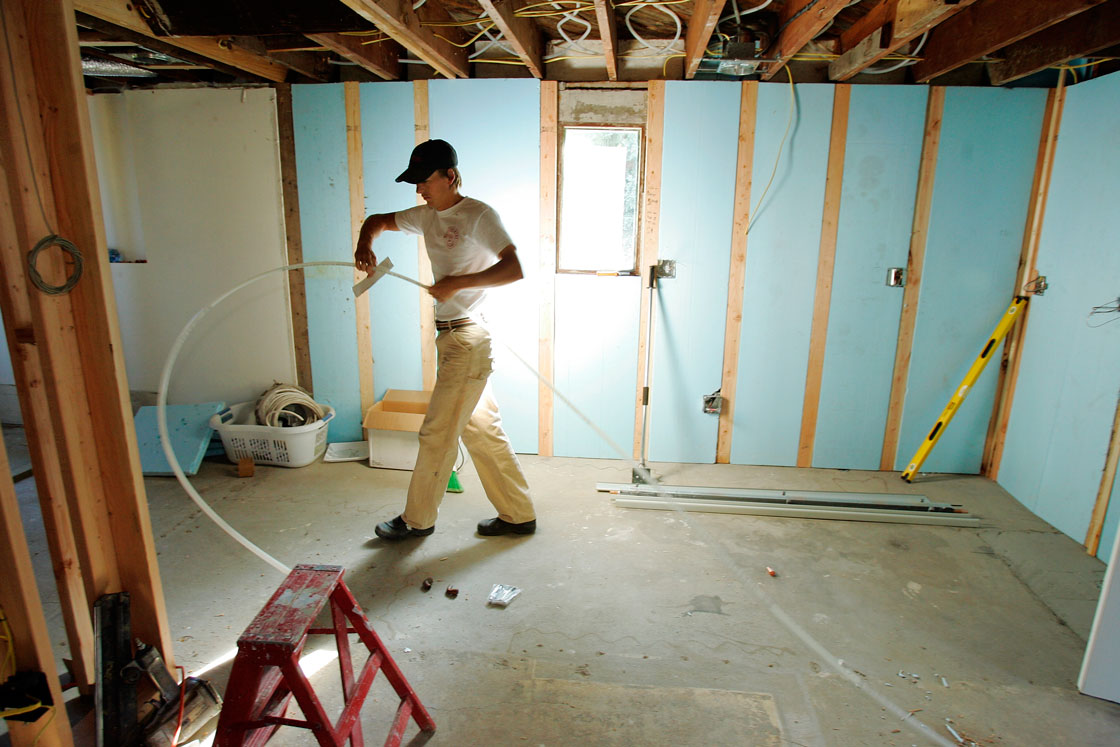Spring is certainly the season for selling your home, yet many Canadians have renovations on their minds.

A new survey from TD Bank shows that more than half of Canadians polled (56 per cent) would consider buying a fixer-upper or renovating their current home rather than buying a house that’s move-in-ready.
“Given the cost and stress associated with moving, renovation is a popular choice among Canadians,” said TD’s Pat Giles.
The top reasons given for choosing to renovate were to increase the value of their property (69 per cent), upgrade the look and feel of their home (59 per cent), and improve their home’s efficiency (48 per cent).
Renovate or relocate?
When deciding whether a reno or move is the best option for you, TD said to ask yourself a series of questions, including:
- Can you deal with renovation stress?
- Are you willing to invest in your current home?
- How much money are you willing to spend?
If you’re not willing to DIY or put up with a torn-up kitchen for a few months, renovations might not be for you. If you’re willing to put some money into your current home, but have a limited budget you might want to try a home ‘refresh’ rather than full-blown renovation.

Get weekly money news
Getting the most bang for your buck
If you’ve decide a home ‘refresh’ is more in line with your budget, there are ways to maximize your money.
“Kitchen, income suites, bathrooms, flooring and fixtures — those five items are a pretty much guarantee to give you a great return on investment,” said Scott McGillivray, HGTV host and author of How To Add Value To Your Home.
If you don’t have a large budget, smaller changes, like painting or upgrading your kitchen appliances, can make a big difference.
When it comes to kitchen ‘facelifts’ for smaller budgets, McGillivray recommends painting your existing cabinets, changing your backsplash and hardware.
“These are the most inexpensive and efficient ways to upgrade a kitchen and have a huge impact. This is where your return on investment is highest in a kitchen,” he said.
Click here for more tips on getting the biggest bang for your reno buck.
Avoiding financial pitfalls
According to the TD survey, 61 per cent of all respondents said money was the biggest concern they had when considering the decision to renovate.
With any renovation there are a certain number of costs you can calculate upfront – and then there are the unforeseen costs that can pile up, when a project goes over-budget or a contractor’s estimates don’t match the final bill.
The first step to making sure you don’t get in over your head is to ask yourself if you can handle the project. In theory, you’ll save money by doing the work yourself, but if you don’t know what you’re doing, it could cost you in the long-run.
“There’s a fine line between getting sweat equity and screwing up your house,” said McGillivray.
When hiring a professional, experts at TD recommend doing plenty of research ahead of time – call for references, ask around, get a number of bids on the project, and check the contractors’ track records.
Include cost-overruns in your budget from the beginning to avoid going into the red if your project uncovers a few (costly) surprises.
“Factoring in an extra 10 to 15 per cent on top of your anticipated costs can help keep you from running over-budget,” said Giles. “Be prepared to make the trade-off decisions that inevitably come with renovations,” he added.
With files from Global News’ Trish Kozicka







Comments